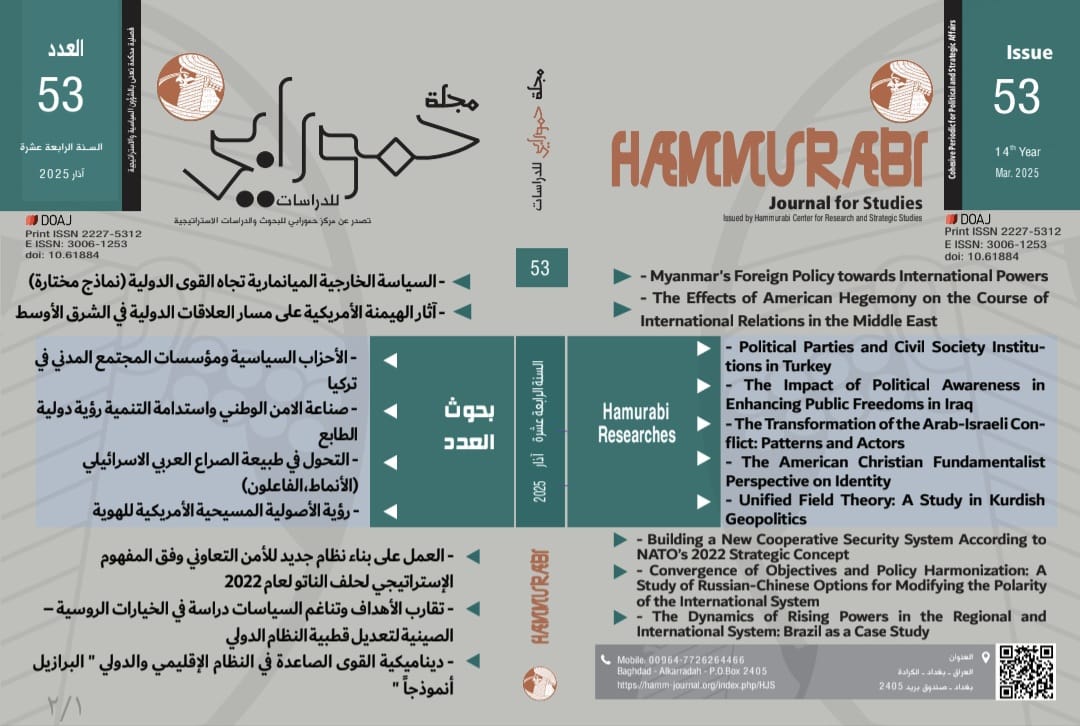آثار الهيمنة الأمريكية على مسار العلاقات الدولية في الشرق الأوسط
DOI:
https://doi.org/10.61884/hjs.v14i53.584الملخص
في أعقاب تفكك الاتحاد السوفياتي، أدخلت الولايات المتحدة الأمريكية سلسلة من المبادئ والأطر الرامية إلى تشكيل النظام العالمي الناشئ، وقد تمحور هذا النموذج الجديد حول تعزيز الديمقراطية وحقوق الإنسان، وتعزيز الانفتاح على العالم الحر، وإرساء الهيمنة على المناطق الحاسمة مثل الشرق الأوسط والخليج العربي، و كان الهدف هو بناء إطار إقليمي في الشرق الأوسط يرفع من نفوذ إسرائيل بينما يهمش الدور العربي ويبدد مصادر قوة بلدانه عبر تفكيك العديد من الدول العربية ووضع سياسات خاصة لحكوماتها وأنظمتها وفرض الحصار والعقوبات لشل حركتها واحتوائها.
فلا تزال الهيمنة الأمريكية على الشرق الأوسط قوة مؤثرة في المنطقة منذ عقود، وقد أثرت على التوجهات السياسية والاقتصادية والاجتماعية في البلدان في جميع أنحاء المنطقة، وعمدت الولايات المتحدة على تعزيز نفوذها من خلال مجموعة متنوعة من الوسائل، بما في ذلك التدخل العسكري والمساعدة الاقتصادية والضغط الدبلوماسي.
وبسبب التغيير في موازين القوى الدولية وبروز العديد من القوى الصاعدة كالصين وروسيا والاتحاد الأوروبي كان لهذه القوى الكبرى العديد من ردود الأفعال المتباينة على الهيمنة الأمريكية في منطقة الشرق الأوسط، وذلك كنتيجة واضحة لأهمية هذه المنطقة في دائرة الصراعات والتحولات الدولية الجارية.
الكلمات المفتاحية: الهيمنة الأمريكية، الشرق الأوسط، العلاقات الدولية، تحولات القوة العالمية، النفوذ الجيوسياسي.












